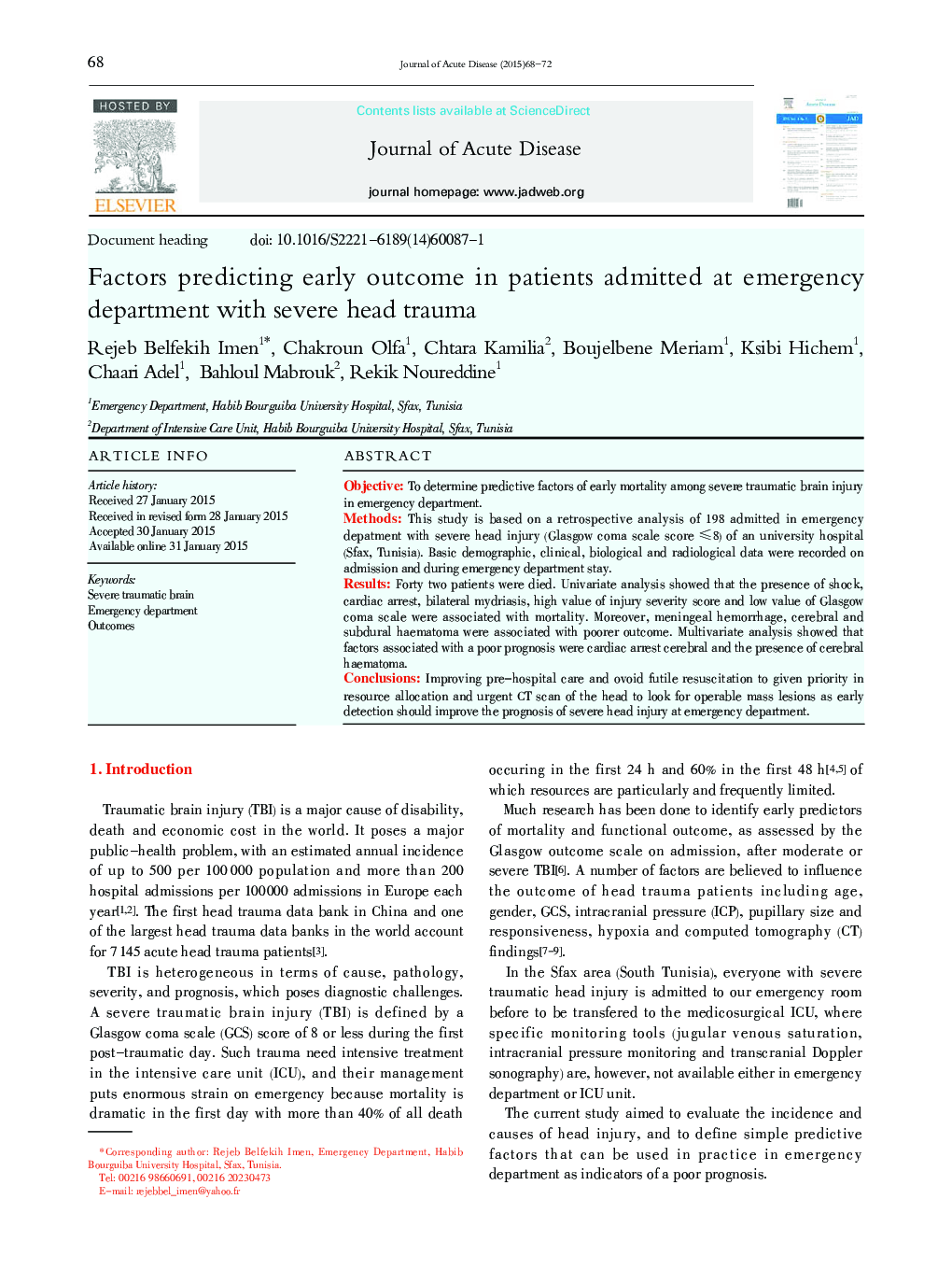| Article ID | Journal | Published Year | Pages | File Type |
|---|---|---|---|---|
| 3475214 | Journal of Acute Disease | 2015 | 5 Pages |
ObjectiveTo determine predictive factors of early mortality among severe traumatic brain injury in emergency department.MethodsThis study is based on a retrospective analysis of 198 admitted in emergency depatment with severe head injury (Glasgow coma scale score ≤8) of an university hospital (Sfax, Tunisia). Basic demographic, clinical, biological and radiological data were recorded on admission and during emergency department stay.ResultsForty two patients were died. Univariate analysis showed that the presence of shock, cardiac arrest, bilateral mydriasis, high value of injury severity score and low value of Glasgow coma scale were associated with mortality. Moreover, meningeal hemorrhage, cerebral and subdural haematoma were associated with poorer outcome. Multivariate analysis showed that factors associated with a poor prognosis were cardiac arrest cerebral and the presence of cerebral haematoma.ConclusionsImproving pre-hospital care and ovoid futile resuscitation to given priority in resource allocation and urgent CT scan of the head to look for operable mass lesions as early detection should improve the prognosis of severe head injury at emergency department.
